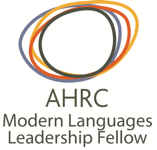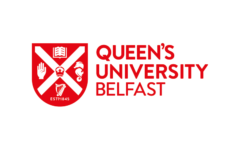Latest News & Events
Attitudes towards digital culture and technology in Modern Languages – Report
Attitudes towards digital culture and technology in Modern Languages – Report
| 04/02/2019
A new report published by colleagues from the ‘Language Acts and Worldmaking’ project shows that digital culture and technology has had a significant effect on modern languages learning and research, but this is often poorly understood. It highlights the contribution of digital culture to greater engagement and collaborative learning, but also points to the need for improved strategies and training to better connect different levels of modern languages education and research.
The report is based on a survey of a variety of those involved in modern languages including researchers, teachers, learners, and policy makers among others. The work forms part of the research by Paul Spence and Renata Brandao at King’s College London which explores interactions and tensions between digital culture and Modern Languages research.
Key findings:
- The survey shows that digital culture and technology have had a significant effect on modern languages learning and research, but this is poorly understood, even within the field itself
- In the area of language learning there is evidence of significant digital engagement, which can facilitate active, collaborative learning with support for multicultural and multilingual practices
- There is little evidence of strategic thinking about how digital approaches might connect across different levels of modern languages education and research
- There is considerable consensus for greater training in critical digital literacies, but expectations relating to digital engagement are not met by institutional support
- The report recommends more focused attention to digital in future modern language policy documents. It also suggests that ‘digital’ should not just be viewed in terms of ‘technology’, but rather be viewed as part of wider cultural, social and communicative practices
According to the report Author Paul Spence:
“This report provides an insight into emerging learning and research practices in modern languages, which are increasingly learner-driven and which revolve around creativity, diversity, authenticity and peer-to-peer dynamics. Far from being replaced by digital languages, modern languages once again show their importance in influencing how we shape our understanding of the world, in supporting multilingual habits and in gaining a more rounded view of digitally mediated culture. There is still enormous potential for critical engagement with digital methods in modern languages, which we will explore further in future studies.”
The report and survey contribute to the ‘Language Acts and Worldmaking’ project, one of four projects funded by the Arts and Humanities Research Council (AHRC) as part of its Open World Research Initiative into Modern Languages.
The report is published on the project website: https://languageacts.org/digital-mediations/digital-mediations-publications/survey-report/




